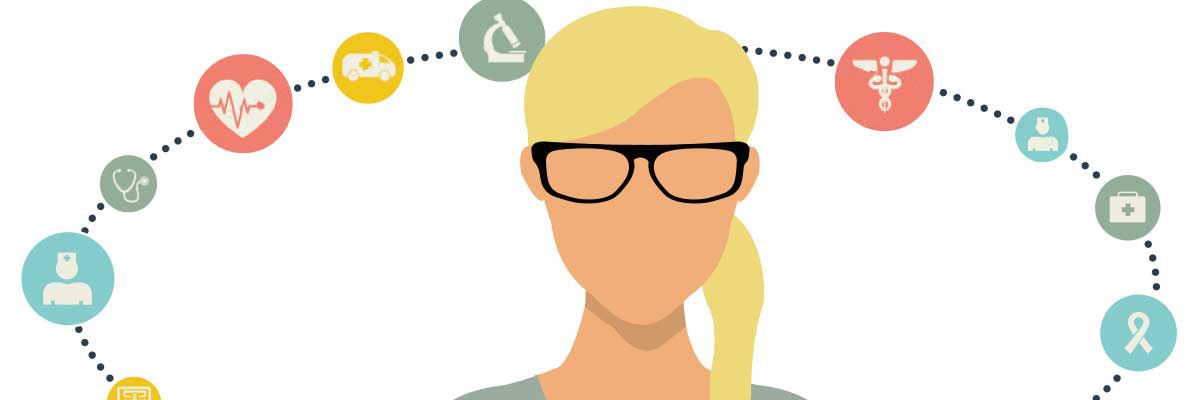We are entering a new dawn in healthcare- one which integrates the personal attention of the past with the technological precision of the present. At one time, physicians and Radiologists regularly collaborated face-to-face to read CT, PET, and MRI scans. As techniques advanced and medicine digitized, diagnosis improved remarkably, but at a cost: patient care often become more remote and impersonal. To better care for individuals, its essential for health care providers to embrace a vision that's patient-centric rather than doctor centric, value-based instead of volume based. There must be a return to consultative relationships focused on positive outcomes for patients, in which each member of a patient's team of physicians and Radiologists is accountable for well-integrated care. Fortunately, this vision has long been the guiding philosophy of leading radiology groups likes Southwest Medical Imaging, says Radiologist Raymond Murphy, M.D., Ph.D. "when Radiologists and physicians work together in a consultative fashion to craft a patient-specific treatment plan that considers the unique features of each patient's disease and their individual needs and wishes, patients feel empowered as part of the team. This consultative approach from physicians allows patients to opt confidently on a therapy they understand and believe in."
Value Based
Dr. Gregory Evangelista - Orthopedic Surgeon
A lot of things in medicine are volume-driven now, and personally I don't like that trend where you must see X number of patients. Volume-based medicine isn't why we got into this. We got into this because we want to make people better. You can't do that unless you're dealing with quality providers. The value in having a group that's not all about volume is that your patients get more personalized care, and the Radiologist has time to identify something. If the Radiologists have a question about something, they have time to make a call and reach out to the provider that ordered the study. And that patient is going to get better care than they would with a Radiologist who's sitting in a room 600 ukes away and doesn't know anything about the patient or the doctor and is just reading studies.
Consultative
Dr Jay Friedman
Health care is becoming more fragmented and less personalized. That is not benefiting the patient. Physicians such as myself must have a working relationship with Radiologists so that I have the trust in their expertise and their interpretation. There are radiology services that impersonally outsource to somewhere around the world at any hour of the day. And it's not the same outcome: the care environment is not the same. I have patients who say, 'I can get an MRI at such and such for half the cost' But I don't know the doctor who's reading that MRI. I know the doctor who's reading it at SMIL, and I know that's where I would send my own family. Radiology is so important in the diagnosis of patients. When we have ongoing long-term relationships with the individual Radiologists a trust develops. That is a priceless part o the equation.
Patient Centered
Dr Linda Liu - Breast Surgeon
In my surgical practice, it's important that the patient participates in the decision-making and planning. We have to develop a rapport with them to take the time to educate them on their choices and empower them to make the best decisions for themselves, so they are not making choices based on anxiety and fear. What makes that discussion easier for me is if they've gone to a great place like SMIL, where the nurse navigators and Radiologists explain to them what the imaging reveals. So, they're much more informed and calmer when they come into my office. MY patients and I appreciate the amount of time they spend with each patient/ I also participate in a multi-disciplinary panel for breast cancer patients. SMIL Volunteers their time, and through their participation and that of other doctors. We plan as a group how to best treat complicated patients.
Outcomes Focused
Dr Allan Block - Neurologist
An outcomes focus is key because there are a lot of things in medicine that we can do, and that isn't always the same as what we should do. So, it's very important to know what outcomes you are looking for, because if a test or medication isn't going to change the overall outcome, why do it? We need to ask the question, 'Is this going to make a difference?' And having a radiology facility that also realizes that is critical. The patient is the center of medicine, and we can't lose sight of that. We're here to help represent patients in a very difficult world of healthcare, in helping them decide what's right. A radiology facility that recognizes that and isn't just trying to do unnecessary studies on someone to run up the bill, but rather do the studies that are right for the patient is critical."
Integrated
Dr. Timothy Kelsch - ENT Otolaryngologist
"It's all about information. The more integration we have, the fewer misinformed decisions we'll have. Talking, sharing information, and sharing images is vital to being able to deliver the best care possible without mistakes or overly aggressive therapies. I have SMIL on speed dial. I call them every day and we try to make sure we answer the patient's question. Today I had a patient who had seen three different physicians. At no point had her goals really been met. They did basic hearing tests and said, 'You're okay.' Ultimately, I found a mass behind her eardrum. She was in my office and within seconds I called Dr. Gasser at SMIL and said, 'What's the best scan I should do? 'And we made that decision together. In one scan, we're going to get the best answer for this lady, the least expensive option, and after seeing three ENT's, for the first time she's going to get her answer."
Accountable
Dr. Bernard Gburek - Urologist
"The importance of accountability comes back to having a sense of confidence in the work that is being done. When the Radiologist that is providing services to myself and to my patients communicates, when they are accountable, there is a great deal of confidence that the person who's reading the film or performing the procedure is going to put their best foot forward. The heart to any good relationship, be it a doctor-to-doctor relationship or a doctor-to-patient, will remain communication. Even though we have so many great tools for communicating electronically, there really is never any substitute for the direct conversation and the understanding of subtleties and insights in providing good care for a patient for their specific situation. When an organized is built on relationships and providing good service and good communication to patients and to physicians, there's a great deal of confidence in the outcome."


